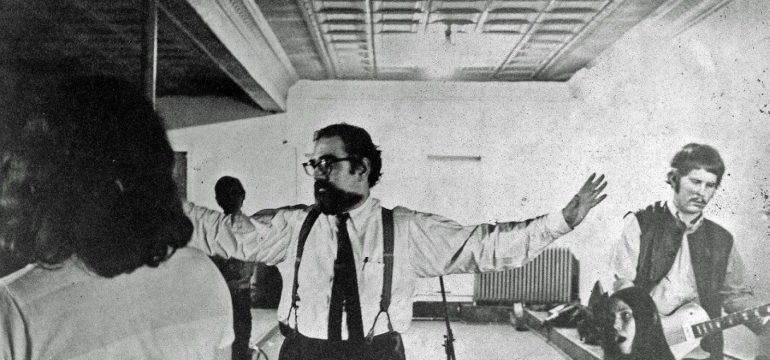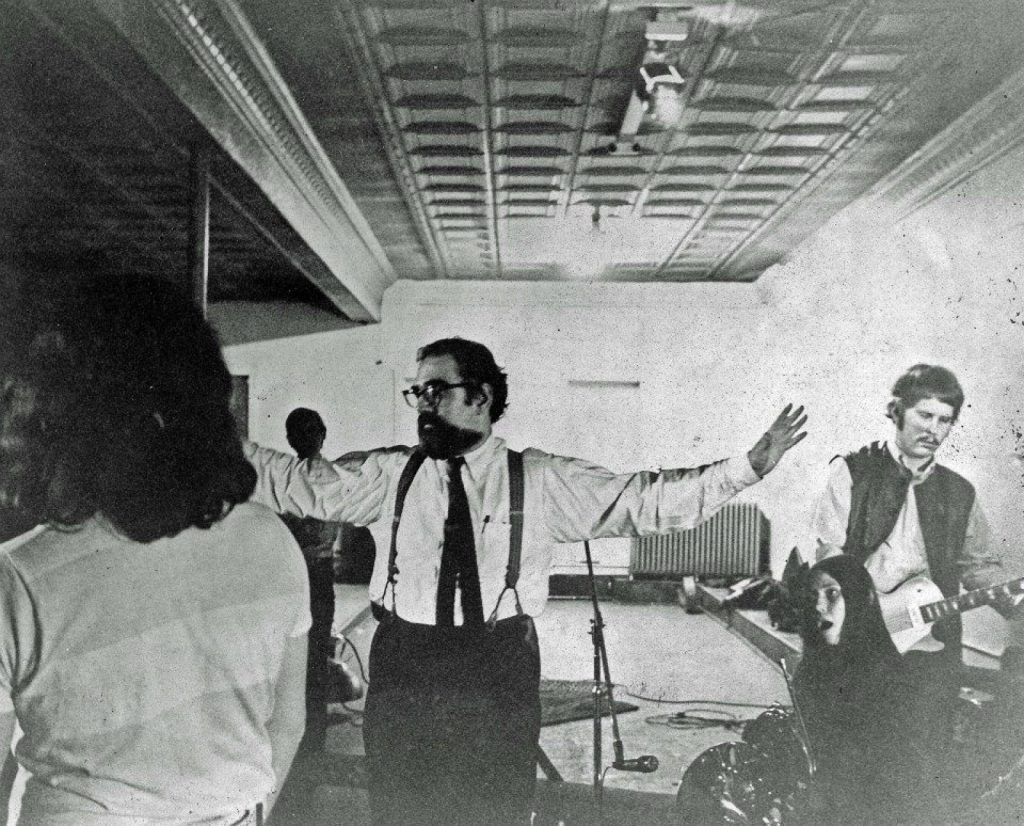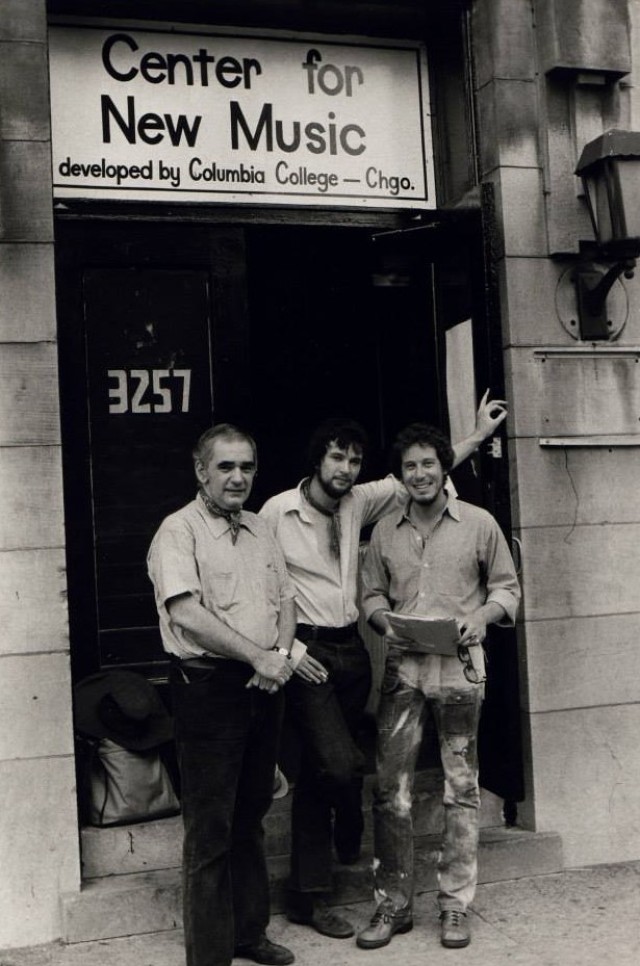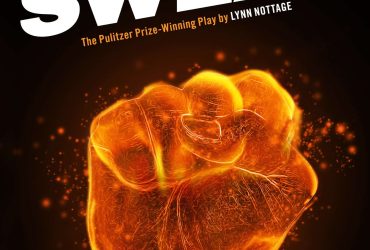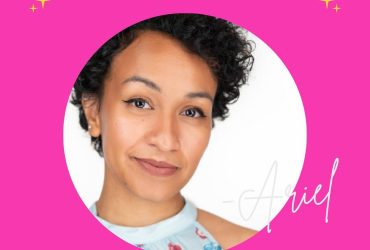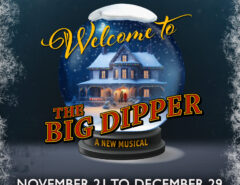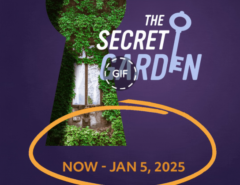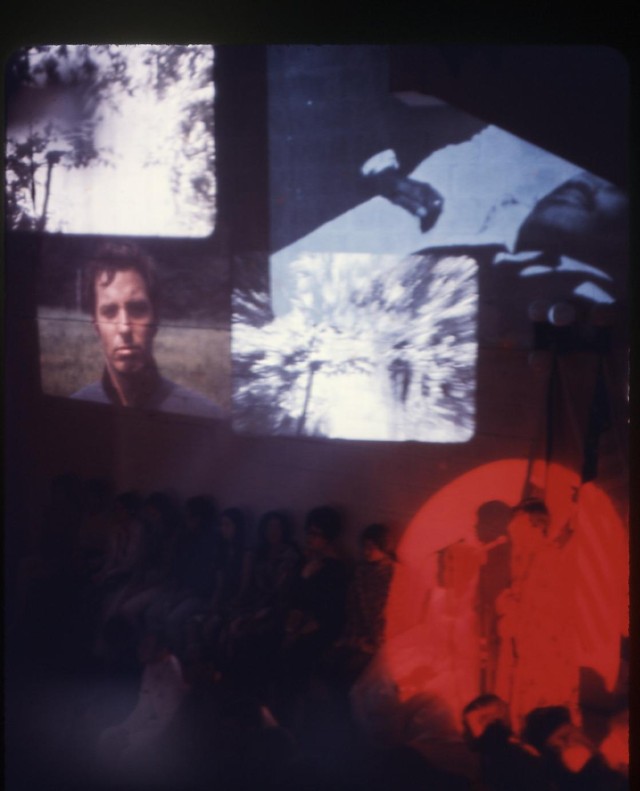
Free Theater performances often included multimedia visuals that incorporated film and slide projections, designed by visuals producer Bob Boldt. This photo shows a performance of “The Civil War” in 1968 at 1846 N. Wells. (Photo: Bob Boldt)
Most of Russo’s works — some identified as operas, others written in a form he identified as “rock cantata” — applied rock, blues, and jazz musical idioms to stories drawn from The Bible and Greek tragedy. Russo’s musical interpretation of this classic material explored contemporary resonances during the late 1960s and early ’70s. As the WBEZ article notes, “The Free Theater was created during a historic time in Chicago and the country — a period marked by the Civil Rights movement and the war in Vietnam. The ensemble stood out for its open door policy (no auditions required) and for putting on rock music plays with strong political themes making theater more appealing to young people looking for a creative outlet.”
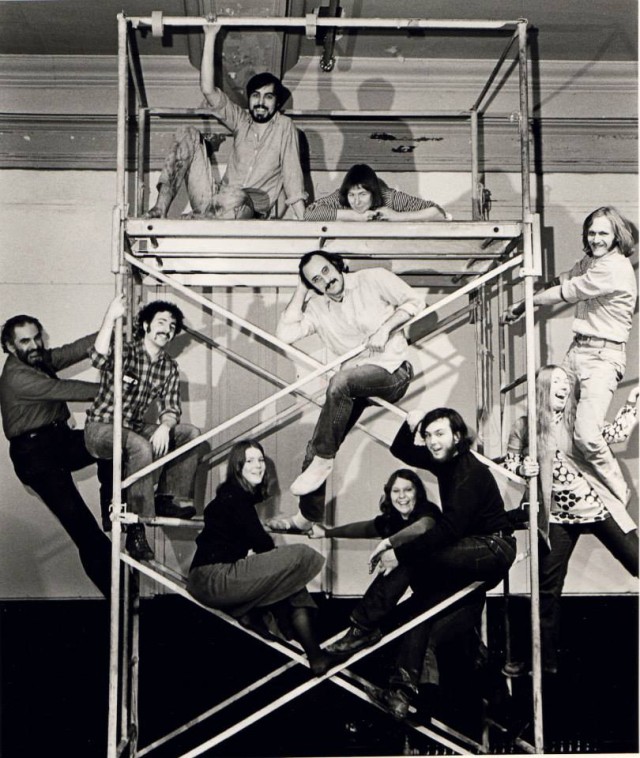
Members of the Free Theater Improvisation Ensemble. L-R: William Russo; Frank Chaney and Denise Walther (top); Steve Lynch, Kate Buddeke, Rick Sack, Trisha Long, and Albert Williams (under scaffold); Nancy Travers and Joseph Reiser. Photographer unknown. Courtesy Albert Williams
Most of the productions had large ensembles of solo singers, choral singers, and dancers — a mix of professionals, amateurs, and Columbia College students. Multimedia effects in the form of film and slide projections and psychedelic light displays enhanced the power of the performances. In addition to its home base of Chicago, the Free Theater performed at college campuses around the country as well as in New York City and London. The troupe also spawned two sister Free Theater ensembles in Baltimore and San Francisco. Besides written works, the Free Theater presented performances by its Improvisation Ensemble, which created original rock operas based on audience suggestions using improv techniques developed by Russo’s sometime collaborator Paul Sills, co-founder of Second City.
After the Free Theater disbanded in 1974, Russo continued to head the music program at Columbia College until he retired in June 2002, six months before his death. During his long career before and after the Free Theater, he was a significant composer and conductor in the worlds of jazz and symphonic music, also penning film scores and occasionally returning to the theater to write dramatic works for the stage. His legacy lives on through the William Russo Endowed Scholarship for Excellence in Music at Columbia College.
To read the WBEZ article, click here.

